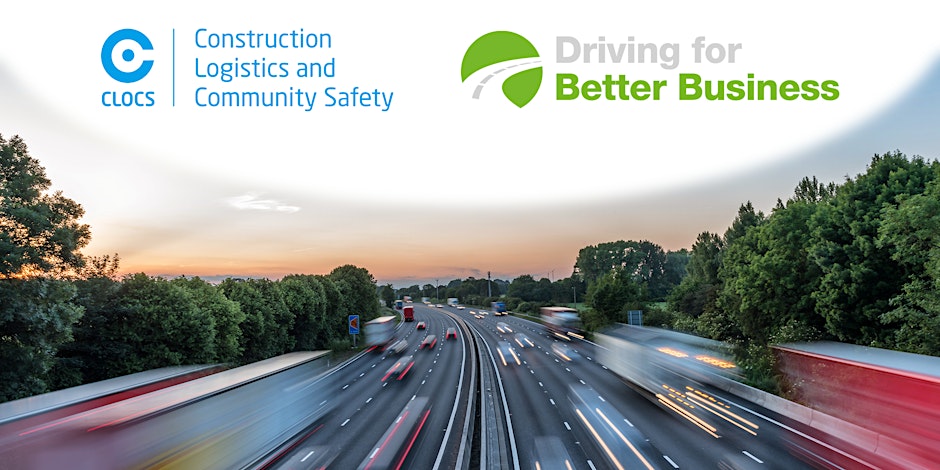“Great event, well presented & put together – very impressed with all aspects”
“Exceeded expectations. Good presentation materials making it easy to report back to my team.”
“Really interesting content. Lots to think about and share with the business”
CLOCS and Driving for Better Business hosted a joint conference on what the future holds for road risk management from both safety and commercial perspectives. You can download the presentations below from each speaker section in the programme agenda.
The programme included:
- Mock Trial following a collision between a van driver and a cyclist – we examine a range of driver and management failures that could have contributed, and look at the likely outcomes.
- The importance of a driving for work policy – why you need one and how to create a ‘good practice’ policy.
- How to carry out an effective incident investigation – what to look for, where to look, and how to act on the findings.
- An examination of some of the most critical aspects of vehicle safety.
- Supply chain compliance – why a failure to demonstrate good road risk management could jeopardise your business prospects.
- AI and the future of health and safety – how technology can help us understand and mitigate risk.
Agenda
| 09.00 – 09.45 | Registration and refreshments |
| 09.45 | Opening remarks from Adrian Boughtflower, (Chair of the CLOCS Strategy, Standards and Governance Board) Adrian will talk about the launch of the new CLOCS standard which now covers other vehicle types, and how the day will enlighten delegates on some of the current and upcoming challenges in fleet driver safety. |
| 10.00 | Mock Trial: Employer in the Dock (Charlotte Le Maire & Simon Turner) We examine the driver and management failures behind a collision involving a van driver and a cyclist which results in a charge of ‘Causing Serious Injury by Dangerous Driving’ for the driver and a prosecution under the Health and Safety at Work Act for the employer.DOWNLOAD THE PRESENTATION |
| 11.00 | The importance of a Driving for Work Policy (Simon Turner) The Driving for Better Business Programme has launched a new, online resource that employers can use for free to write, review and communicate a good-practice driving for work policy to their workforce, as well as receive updates whenever legislation or guidance changes. This is a vital tool for any employer and their supply chain.DOWNLOAD THE PRESENTATION |
| 11.30 | Refreshments |
| 12.00 – 12.30 | Incident investigation (Andrew Drewary, Road Safety Smart) The mock trial in the morning session centres around a serious road collision involving an at-work driver. The driver’s employer would be expected to conduct an internal enquiry to see if any lessons could be learnt to prevent it happening again. Was it solely the driver’s fault or did any management failings contribute? Andrew will examine how such an investigation should be conducted, what to look for, where to look and how to act on the findings.DOWNLOAD THE PRESENTATION |
| 12.30 – 13.00 | Managing an ageing, high mileage fleet (Barrie Wilson, FleetCheck) With consumer demand falling behind the sales targets set out in the ZEV Mandate which governs the phase out of petrol and diesel vehicles, manufacturers are now regularly indicating that they are likely to restrict the supply of ICE vehicles to avoid penalties. This is likely to cause an acute van shortage in the short to medium term, meaning operators could have to run existing vehicles for far longer. What are the challenges and the safety implications for your business of running an ageing high-mileage fleet?DOWNLOAD THE PRESENTATION |
| 13.00 – 14.00 | Lunch |
| 14.00 -14.15 | Supporting Road Risk Managers: The Association for Road Risk Management (Simon Turner) ARRM is the essential membership organisation for professionals and employers involved in work-related road safety and the management of occupational road risk. Simon will talk through the benefits of being a member and the new courses available for road risk managers.DOWNLOAD THE PRESENTATION |
| 14.15 | Supply Chain compliance – panel discussion
This discussion will focus on the need for authentic top-down leadership as part of the driver safety culture. This is becoming increasingly important as clients seek to raise standards throughout their own supply chains, and entire sectors, by using the tendering process for new work to filter out those that can’t demonstrate good-practice management of driver safety. Our Panel: Sarah Richards, Senior Logistics Manager, HS2 Jon Holder – Operations Leader – Logistics, Select Plant Hire Ruth Trant – Safety, Health, Environment & Assurance Director, DGP Logistics Chaired by Adrian Boughtflower |
| 15.00 | AI and the future of Health & Safety (Karl Simons OBE) AI is making a huge impact in all areas of business and all business sectors. Construction logistics is no different. Karl has 35 years’ experience working internationally in numerous safety-critical industries, is a lecturer at the University of Cambridge and is an Adviser to the Cabinet Office.DOWNLOAD THE PRESENTATION |
| 15.45 | Closing Remarks |
| 16.00 | Event close – access to British Motor Museum |
Keynote Lecture: Embracing the evolution of Artificial Intelligence by Karl Simons OBE
Having delivered AI lectures over many years to UK and International politicians, governments, academics, business leaders and employees, I find that in all audiences there is still less than 3% that are confident in their understanding of AI, which is worrying, given the speed that technology is being advanced within society and business.
This lecture is an opportunity to hear firsthand how AI is already being used today by over 50,000 fieldworkers in the sectors of electricity, gas, water, construction, rail, highways, and facilities services.
With an extensive background in Safety, Health & Security management in business, I have worked across all continents and within multiple industry sectors holding critical national infrastructure assets. As a mechanical and electrical engineer, I have an in depth understanding of fieldwork and management interface. Combined with specialist knowledge in Artificial Intelligence and Safety & Health, I am able to articulate and present the lecture content so that all can understand this complex issue in layman terms.
With the increasing popularity and adoption of AI within society, there is an increasing wave of use in all sectors of our economy. Leaders, managers, and employees need to be abreast of the latest cutting-edge solutions that are rapidly being applied by progressive organisations. This lecture will include:
• Understanding Artificial Intelligence and how Algorithms, Natural Language Processing, Imagery Analysis and Reasoning Engines are being used.
• How AI is being applied within the design, construct, operate and maintenance processes of the workplace.
• A look at how predictive risk solutions are being used to aid employees and managers from data led sources of information.
• Increasing awareness of remote risk visualisation and how AI is being used to provide actionable insights that enhance productivity, safety, and quality.
• In depth look at how smart solutions are now being used to connect the remote workforce with management, through application programming interfaces that enable the integration between internal and external digital solutions.


